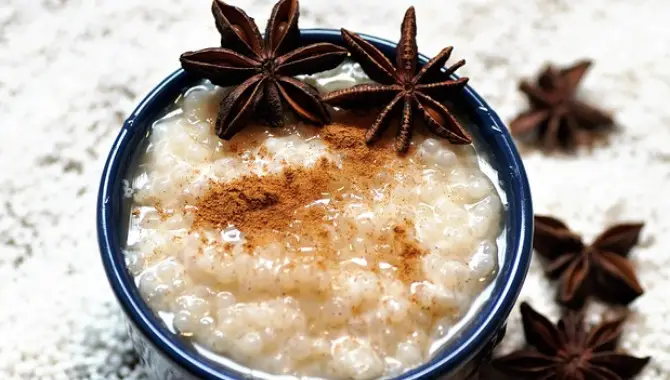Anyone who has been vegan for a significant period of time will have stumbled upon foods where it is not immediately obvious whether or not they are vegan-friendly. While some ingredients are quite clearly derived from animals, it is not always apparent and on several occasions, I have picked up a food product in the shops, convinced it will be vegan, only to find out that milk or whey has been added. Tapioca is one example of a food product that causes confusion because the texture of things like tapioca balls lead many people to believe it contains gelatin.
So is tapioca actually vegan? The quick and easy answer would be ‘yes’. Tapioca is a starch that is produced from the cassava plant. It can take many forms, including powder, balls and flakes, but all forms are plant-based. Therefore, it is perfectly acceptable for those eating a vegan diet.
At the same time, there are a few things vegans do need to be careful of, such as the use of additional ingredients within tapioca balls. Meanwhile, some of the popular foods and drinks containing tapioca can either be vegan or non-vegan, depending on the other ingredients that are used. In this article, I will explain why tapioca is usually vegan-friendly and what some of its main uses are. However, I will also outline some of the reasons vegans need to keep their wits about them, in order to avoid running into problems with products containing tapioca.
What is Tapioca and Can Vegans Eat It?
Tapioca is a starch, which is extracted from the roots of the Manihot esculenta plant, more commonly known as the cassava plant or the yuca plant. Cultivation of this plant is common in areas like South America and Southeast Asia and tapioca itself is often used as a thickening agent or stabilizer in a wide range of food types. It can also be easily made into a flour and is naturally gluten-free. As a result, it has become an increasingly popular alternative to wheat. However, many people are most familiar with tapioca balls or pearls, which are used for smoothies and bubble tea.
Crucially, tapioca is derived entirely from plant roots, meaning it is suitable for vegans to eat. This is almost always true, regardless of whether it is sold in flake form, powder form, or tapioca balls. So if you see a product that would usually be vegan and tapioca is one of the listed ingredients, it is generally still safe to eat.
In terms of its nutritional value, tapioca is almost entirely carbohydrate, offering up very little in the way of vitamins, minerals or protein content. For this reason, it often serves as a food additive, helping to influence texture. With that said, in South American cuisine, it often functions as a type of flour, while in North America and Europe, it is a fairly common ingredient in desserts. It is also used in the production of various snack foods.
When in the form of balls or pearls, tapioca is sometimes referred to as ‘boba’. Tapioca balls are largely tasteless but have a soft and chewy texture. The balls can be made to take on different colors, textures and tastes by combining the tapioca with additional ingredients, such as water and sugar. In a small number of cases, honey may be used to sweeten the balls, which would make them unsuitable for a vegan diet. Very rarely, gelatin may also be added and this is also off-limits to vegans, as it is an animal product, derived from collagen.
One thing to be aware of with tapioca balls is that their texture can lead some people to conclude that they contain gelatin even when they do not. It is important to emphasize that the vast majority of tapioca balls are gelatin-free. The confusion is amplified, however, by the fact that the manufacture of tapioca balls sometimes includes a heat treatment process known as gelatinization. However, gelatinization is actually completely unrelated to gelatin. If you do encounter tapioca balls that have undergone a gelatinization process, they will still usually be vegan-friendly.
So to summarise, tapioca is almost always vegan, no matter what form it takes. When it comes to tapioca balls or pearls, however, it is important to double-check that the balls do not contain gelatin and have not been flavored with honey. So now that you know tapioca itself is vegan-friendly, you may be wondering about some of the foods and drinks that make use of the ingredient. First, I will cover bubble tea, followed by some other popular tapioca foods.
Is Bubble Tea With Tapioca Balls Vegan?
One of the main ways you may encounter tapioca is if you order bubble tea, otherwise known as boba tea, or boba for short. This is a tea-based drink of Taiwanese origin, which has grown in popularity all around the world in more recent years. It is notable for its use of tapioca balls, which sit at the bottom of the cup.
The question of whether bubble tea is vegan is somewhat complicated because bubble tea has two main forms. The first is a fruit drink, usually made using a fruit syrup, while the second is a milk drink, often made using cow’s milk. Some forms of bubble tea even combine both milk and fruit together. So, in order to answer whether or not bubble tea with tapioca balls is vegan, it is first important to distinguish between these varieties.
Generally speaking, the fruit-based bubble tea drinks will be vegan-friendly. Fruit syrup is perfectly in-keeping with a vegan diet and tapioca balls are usually vegan too. The aforementioned exceptions still apply, but it is again important to stress that the vast majority of tapioca balls do not contain gelatin and are not flavored with honey.
On the other hand, milk-based bubble tea is usually not vegan, as it will generally make use of milk from a cow or another animal. With that being said, vegan creamers are also sometimes available, so it is worth asking, and some bubble tea shops or stalls will even use it as their default option, to avoid this problem.
Therefore, the best way to answer the question of whether or not bubble tea is vegan is to say that it can be, and is not off-limits entirely, but you should always check rather than assuming that it is vegan. Fruit-based bubble tea is usually safe, but milk-based bubble tea will require cow’s milk to be substituted with a vegan-friendly alternative.
What Other Tapioca Foods Are Vegan?
At this stage, you may be wondering whether certain other common food types containing tapioca are suitable for vegans and it is important to understand that foods need to be assessed on a case-by-case basis. I would recommend that you always check labels and always ask in restaurants about whether or not animal products have been used.
One of the main food types that utilize tapioca as a key ingredient is tapioca pudding. This is a pudding that is typically made from a combination of tapioca and either milk or cream, and in both cases, this would not be suitable for anyone on a vegan diet. However, the milk used for a tapioca pudding could easily be replaced by a vegan-friendly alternative and, in fact, coconut milk is sometimes used anyway, even by non-vegans, due to its distinctive flavor. This means that the crucial deciding factor on whether or not tapioca pudding is vegan is the milk that is used.
Tapioca is also used in a number of gluten-free bread varieties, including several types of flatbread. It is impossible to generalize about whether or not these will be vegan, although it is more likely than not. The main things you will need to check for include the use of egg or the use of butter. One potential problem is the use of butter to grease the equipment used to cook the bread, and it can be difficult to know for sure whether this has been done unless you buy from a bakery, or order from a restaurant, where you will be able to ask directly.
If you are buying a bread variety with tapioca from the shops, read the ingredients and allergy information carefully. When possible, try to stick to brands that advertise being vegan-friendly or brands that have a vegan certificate.
Is Tapioca Bad For the Environment?
Depending on the factors that originally influenced your decision on why to become vegan, one final thing to consider with regards to the use of tapioca is the potential environmental effects resulting from its production. In particular, some people have expressed concerns about the sheer amount of water that is needed during the process.
This use of water then leads to additional environmental problems, some of which may be of concern to vegans. For instance, tapioca naturally produces cyanide, which is harmful to humans and many other living creatures. This cyanide is removed during processing, meaning eating tapioca is safe. However, it means that the wastewater from the production process can contain cyanide. Depending on how this wastewater is then handled, problems can occur. In some cases, it is filtered directly into natural bodies of water, potentially poisoning fish and other aquatic life.
For this reason, when discussing whether or not tapioca is vegan, it may be more accurate to say that it is vegan by most standards. Some vegans refuse to participate in the funding of any industries that are known to cause harm to animals and the tapioca industry cannot be completely absolved of causing such harm.
With that being said, there are arguments in favor of tapioca being environmentally-friendly too. For instance, tapioca root can be used for the production of a range of biodegradable products, replacing plastic. An example of this would be carrier bags for shops and supermarkets. In addition to being biodegradable, tapioca products of this kind can be re-used and recycled, and can also be classed as renewable, making them preferable to many alternatives.
Welcome to VeganClue - My name is Robert Van De Ville and together with my team we spent hundreds of hours researching the most relevant topics for Vegans and non yet Vegans. Are you looking for more information about Veganism, animal welfare, diet, health, and environmental benefits of the Vegan lifestyle? You are in the right place! Enjoy the site.

